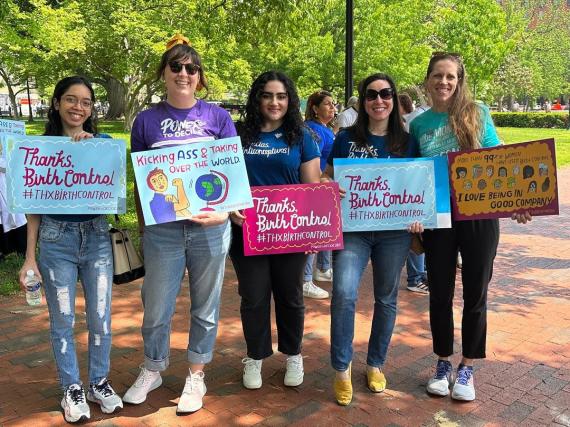Getting Real: 5 Ways to be an “Askable” Parent
One recent Saturday, I had the pleasure (really!) of driving a carload of 8th grade girls to a party. As their chatter got louder and I grew increasingly invisible, I realized how much more they grapple with when it comes to relationships than I did in middle school. If someone likes your post on Instagram, does it mean they like you in real life? How long do you wait to text your crush back so you don’t seem too eager?
Despite this new landscape, one thing has remained true year in and year out: young people want and need their parents and the other adults who care about them to talk openly, honestly, and without judgment about all things sex, love, and relationships.
With 20+ years as part of Power to Decide I know that these are important (if tough) conversations, and that there’s no such thing as “The Talk”: it’s an ongoing dialogue that spans years. But now that I’m the mom of a teenager, I’m more aware of the need to strike just the right tone to allow these conversations to flourish. Decades of research show that parents are the most important influence on young people’s decisions about sex. According to New polling from Power to Decide in honor of May’s Talking Is Power month, one-third of adults say their parents (more so than their friends) were the biggest influence on their decisions about sex and birth control during their teen years. And more than eight in ten feel that they are someone a young person would trust to talk about sex, love and relationships.
Yet parents consistently underestimate their power, and believe that peers, pop culture, and partners are more influential. Not so! As media advisor to Power to Decide, I’ve had countless conversations with parent-focused media--and parents themselves—to assure them that young people really do want to hear from them, even if they don’t act like it. If we’re not talking with our young people about sex, everyone else is.
Whether you’re a parent, an aunt or uncle, a coach, or a mentor, if you have a young person who trusts you, you’ve already got the hardest part down. As an advocate, a mom, and a work in progress, I offer up five ways to help you cultivate your “askability”:
- Take your cues from your teen. If eye-to-eye sit-downs feel too intense, try talking while you’re in the car or doing errands. Keep it informal. Print out something useful you found online and leave it where you know they’ll find it. Then bring it up later and ask what they thought. It’s a conversation, not a lecture. They may not tell you outright, but at least you’ve passed along trustworthy information that they can go back to.
- Don’t freak out. Listen. Just because your young person has a question, don’t assume they’re doing it. If you judge, overreact, or jump to conclusions, you risk closing the door to future conversations—or send the message that there’s something wrong or shameful about having questions about sex. Listening is a very powerful tool. If you don’t have an answer or don’t know what to say, thank them for trusting you enough to come to you and commit to sharing answers once you find them.
- Deputize someone you trust. It’s humbling but important to admit that as parents, we may not be the most comfortable fit for certain questions about sex and relationships. Find a young adult you trust: I’m lucky to have a wonderful group of young women who babysat my daughter and are still in our lives. They are closer in age to my teen and they can relate to her experiences. I have explicitly asked them to be there for my daughter and to be a safe, askable adult whom we both trust. They’re thrilled! They’ve known my girl since kindergarten and care for her deeply, they’re the perfect resource for her.
- You’re more powerful than you think! Repeat this as many times as necessary. You don’t need to be a biology textbook to be helpful. You have what it takes to help them navigate relationships, power dynamics, heartbreak. You can help them sort out questions like: How do I know if I’m in love? How do I say no to someone without hurting their feelings? Will expressing my feelings for someone ruin our friendship? When is the right time to have sex? Should I start taking birth control if I’m not sexually active yet?
- Don’t wait for them to come to you. If your teen hasn’t asked you anything, it doesn’t mean they don’t have questions. Instead of playing a game of chicken, take the first step. Pop culture can give you an easy entry point: is there a sex/relationship/pregnancy story in a TV show you both watch? Ask what advice they would give that character. Is a celebrity dealing with a cheating scandal? Ask your teen for their must-haves in a relationship. Check out this month’s compelling “Ask Dr. Ruth” documentary (in theaters now and on Hulu June 1), which makes the perfect case for open conversations with someone you trust—no matter your age.
Feeling inspired? Here’s a wealth of information to get you started. Let us know how it goes! Share your best conversation-starters with us and tag #TalkingIsPower @PowertoDecide.



